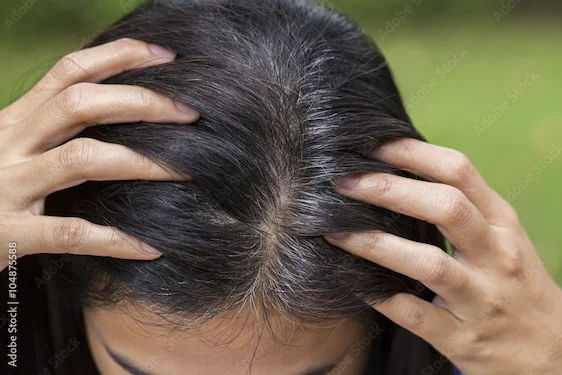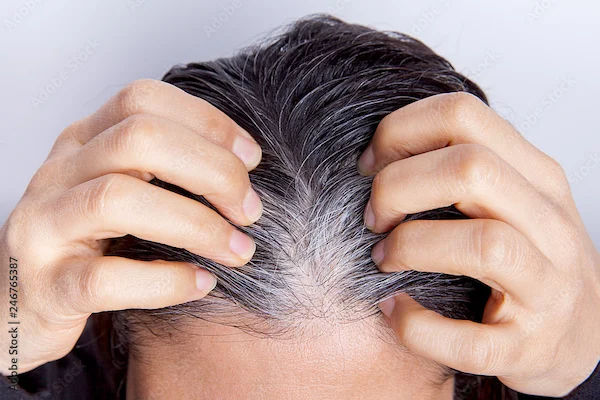How To Reduce Night Fall?
Learn how to reduce nightfall naturally with lifestyle changes, dietary tips, and relaxation techniques. Discover effective ways to reduce night fall and improve overall reproductive health.

Written by Dr.Sonia Bhatt
Last updated on 3rd Jul, 2025
Night fall, or what’s commonly known as nocturnal emissions or "wet dreams," is something many men experience, especially during adolescence. However, it’s not just limited to younger guys—it can happen at any age, and for some, it can bring up concerns about sexual health or overall well-being. Even though night fall is completely natural, it’s understandable if you want to better understand it or reduce how often it happens. If you’re finding yourself dealing with frequent night falls, it’s important to approach the topic with understanding and compassion. Many people find it a sensitive issue, and it’s okay to want to learn more about it. In this article, we’ll dive into the possible causes, symptoms, and treatments for night falls, and share some practical advice to help manage and reduce their frequency.
What is Night Fall?
Night fall refers to the involuntary ejaculation that occurs during sleep, typically accompanied by erotic dreams or sexual arousal. It is a completely natural phenomenon that occurs when the body releases semen during sleep, often without conscious control. While night fall is most commonly associated with puberty and adolescence, it can occur at any age and is often linked to certain physiological and psychological factors.
Causes of Night Fall
Night fall can be caused by a variety of factors. Some of the most common include:
Hormonal Changes: During puberty, the body goes through a lot of changes, and one of the big shifts is a surge in testosterone. This increase in hormones often leads to stronger sexual urges, and for many guys, it can result in spontaneous nocturnal emissions or night falls. It’s a completely natural part of growing up.
Sexual Arousal or Fantasies: Erotic dreams or thoughts can trigger sexual arousal during sleep, leading to ejaculation. For some men, this can happen more frequently, especially if they are exposed to sexual stimuli during the day.
Abstinence or Lack of Sexual Activity: Men who are not engaging in regular sexual activity or who are practising abstinence may experience more frequent night falls. This is thought to be the body's way of releasing built-up sexual tension.
Overstimulation: Excessive sexual thoughts or fantasies, especially before sleep, can lead to an increase in nocturnal emissions. This overstimulation can cause the body to discharge semen involuntarily during the night.
Stress or Anxiety: Psychological factors like stress, anxiety, or even unresolved sexual tension can play a role in how often night falls happen. When you’re feeling stressed, your body can respond in different ways, and one of those ways could be triggering sexual arousal during sleep. This can make night falls happen more frequently.
Certain Medical Conditions: While less common, certain medical conditions, such as hormonal imbalances, neurological issues, or prostate problems, can cause an increase in nocturnal emissions. If night fall is persistent or bothersome, it may be worth discussing with a healthcare provider.
Physiological and Psychological Factors Contributing to Night Fall
Night fall is a complex phenomenon that can be influenced by both physiological and psychological factors.
Physiological Factors
Testosterone Levels: Testosterone plays a big part in sexual arousal and function. When testosterone levels are higher—especially during puberty—it can lead to more frequent night falls. As guys age, their testosterone levels naturally go up and down, which can influence how often nocturnal emissions happen.
Sleep Cycles: Night falls typically occur during the rapid eye movement (REM) phase of sleep, which is when vivid dreams and sexual arousal are more likely to happen. The body's natural sleep patterns can, therefore, influence the likelihood of night falls occurring.
Semen Production: Men produce sperm continuously throughout their lives, and the body may naturally release sperm during sleep if it is not ejaculated through sexual activity. This release can be a normal part of maintaining healthy reproductive function.
Psychological Factors
Sexual Tension: Psychological factors, such as sexual frustration or unmet sexual desires, can contribute to the frequency of night falls. If a person is experiencing sexual tension or an unmet need for intimacy, the body may respond with nocturnal emissions during sleep.
Stress and Anxiety: High levels of stress or anxiety, particularly surrounding sexual performance or relationships, can lead to an increased occurrence of night falls. The body's stress response can affect hormone levels, contributing to more frequent or intense nocturnal emissions.
Emotional and Psychological Health: Emotional factors such as depression, guilt, or unresolved trauma can affect sexual health and arousal. These factors can lead to changes in sleep patterns and, in some cases, an increase in night falls.
How to Reduce Night Fall: Actionable Advice
If you’re concerned about how often you’re experiencing night falls or want to reduce them, there are several things you can try.
1. Establish a Healthy Sleep Routine
Sleep plays a crucial role in the frequency of night falls. A disrupted or irregular sleep schedule can contribute to an increase in nocturnal emissions. To improve your sleep hygiene:
Create a consistent bedtime routine: Try to go to bed and wake up at the same time each day to regulate your sleep cycles.
Avoid overstimulation before bed: Limit exposure to sexual content, intense media, or stimulating activities that may contribute to sexual arousal before sleep.
Reduce stress: Engage in relaxing activities before bedtime, such as reading, meditation, or deep breathing exercises, to help calm your mind.
2. Manage Stress and Anxiety
Stress and anxiety can exacerbate the frequency of night falls. Finding ways to manage stress and improve your emotional health can be beneficial. Consider these stress-reducing techniques:
Mindfulness and meditation: Practicing mindfulness meditation or yoga can help lower stress levels and improve your emotional well-being.
Physical activity: Regular exercise, such as walking, running, or strength training, can help reduce stress and improve your sleep quality.
Therapy or counselling: Speaking with a therapist or counsellor can help address any underlying psychological concerns, such as sexual anxiety or emotional stress.
3. Dietary Modifications
Certain foods can influence hormone levels and overall sexual health. A balanced diet that supports healthy testosterone levels may help regulate night falls. Consider including the following nutrients in your diet:
Zinc: Found in foods like pumpkin seeds, spinach, and oysters, zinc supports healthy testosterone levels and reproductive health.
Vitamin B6: This vitamin is important for hormone regulation and can be found in foods such as bananas, potatoes, and chicken.
Omega-3 fatty acids: Found in fatty fish like salmon, omega-3s support overall hormonal balance.
Additionally, staying hydrated and avoiding excessive consumption of alcohol or caffeine, which can disrupt sleep, can further benefit your health.
4. Medical Treatments for Night Fall
If lifestyle changes are not effective, medical treatments may be an option:
Prescription medications: Certain medications, such as those that regulate hormone levels or address underlying anxiety or depression, may help reduce the frequency of night falls.
Over-the-counter supplements: Herbal supplements, such as ashwagandha or ginseng, may help support sexual health and reduce sexual tension.
Pelvic exercises: Pelvic floor exercises or Kegel exercises can help improve sexual health and reduce involuntary ejaculations by strengthening the muscles involved in sexual function.
Consult Top Urologists
Conclusion
Night fall, or nocturnal emissions, is a completely natural process that many men go through, particularly during puberty or when they’re not as sexually active. For some, it can feel a bit concerning or uncomfortable, but it’s important to remember that it’s generally nothing to worry about. In fact, it’s just the body’s way of releasing built-up sexual tension.
If night falls are happening frequently or causing you stress, there are a number of things you can do to reduce their occurrence. Taking a more balanced approach—through lifestyle changes, stress management, and even medical treatments—can help regulate this process and improve your overall sexual health. But remember, everyone’s body is different and occasional night falls are perfectly normal. If you find that they’re really bothering you or affecting your emotional well-being, it’s always a good idea to talk to a healthcare provider. They can offer support, help you understand what’s going on, and guide you through the next steps if needed.
Consult Top Urologists

Dr. Sateesh Marriwada
Urologist
17 Years • MBBS, MS (General Surgery), Mch ( Genito Urinary Surgery)
Visakhapatnam
Apollo 24|7 Clinic - Andhra Pradesh, Visakhapatnam

Dr Tharaka Mourya Nutulapati
Urologist
7 Years • MBBS, MS (General Surgery), Mch ( Urology)
Visakhapatnam
Apollo 24|7 Clinic - Andhra Pradesh, Visakhapatnam

Dr. Sandeep Maheswara Reddy Kallam
Urologist
6 Years • MBBS, MS (General Surgery), M Ch (Genito-Urinary Surgery), Post Doctoral Fellowship in Uro-Surgical Oncology
Visakhapatnam
Dr. SANDEEP MAHESWARA REDDY K _- best Urologist in visakhapatnam, Visakhapatnam
(250+ Patients)

Dr. Prabir Basu
Urologist
19 Years • MBBS, MS General Surgery, DNB Genito-Urinary Surgery
Jodhpur Park
Dr. Prabir Basu urology clinic, Jodhpur Park
(125+ Patients)
Dr. Mohammed Rehan Khan
Urologist
8 Years • MBBS, MS (General Surgery), Mch (Urology)
Barasat
Diab-Eat-Ease, Barasat



